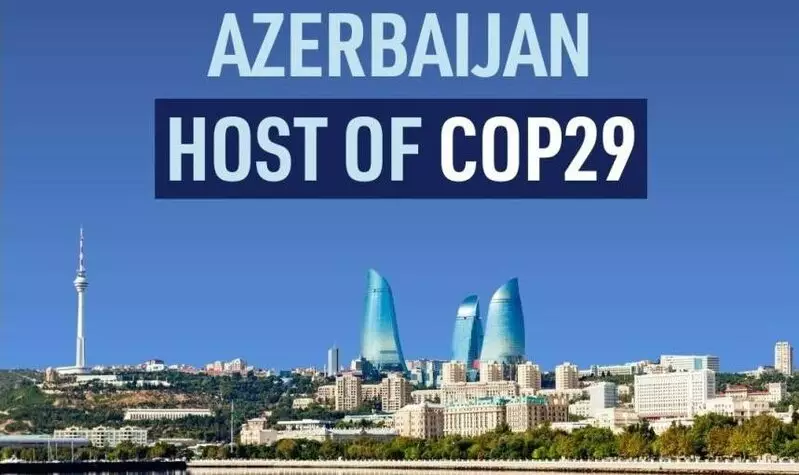Since the end of the 70s of the XX century, the problem of climate changes has begun to attract more attention of the international community. A number of agencies have been established under the mandate of the United Nations to take collective preventive measures against climate change, a Framework Convention on climate change has been adopted and some work has been carried out to strengthen the mechanisms of international cooperation.
For the first time, at the World Climate Conference held in 1979, climate change was declared as an urgent global problem. The Global Climate Program was adopted and a number of conferences were held in the following years to monitor its implementation.
In 1988, the International Intergovernmental climate panel was founded by the World Meteorological Organization and the UN Environment Program and the Second World Climate Conference took place in Geneva with the participation of high-ranking government representatives along with climatologists. According to the resolution of the UN General Assembly of December 21, 1990, the preparation of the text of the Framework Convention on Climate Change began.
In 1992, the preparation of the text of the Framework Convention on Climate Change was completed, and the convention was signed by 154 countries at the World Summit held in Rio de Janeiro in June of that year. On March 21, 1994, the UN Framework Convention on Climate Change entered into force after the completion of the ratification process by the 50th member country. Countries joining the Convention are divided into 2 categories:
1. The countries included in Appendix 1 of the Convention undertake obligations to reduce the greenhouse gases they emit into the atmosphere. This obligation varies from country to country. The countries included in Appendix 1 are mainly developed countries (USA, Australia, Canada, European Union). However, among them there are also developing countries (Turkey, Russia, Croatia).
2. Most of the member countries of the Convention are developing countries that are not included in Appendix 1 (Azerbaijan, South and Southeast Asian countries, CIS countries except Russia, etc.). These countries are not under any obligation to reduce their emissions.
The annual conferences under the United Nations Framework Convention on Climate Change (UNFCCC) are called United Nations Climate Change Conferences. These conferences serve as the official meeting of the UNFCCC parties – the Conference of the Parties (COP) – to assess progress made in combating climate change and to discuss the Kyoto Protocol, which since the mid-1990s has imposed legally binding commitments for developed countries to reduce greenhouse gas emissions . The COP is the highest decision-making body of the UN Framework Convention on Climate Change. Its secretariat is located in Bonn. The hosting of the COP normally rotates among the five regional groups of the UN. Each regional group decides by consensus to nominate a country from among its members to host this conference
In 1995, the UN Climate Change Conference was held in Berlin for the first time. Then, every year from COP-1 to COP-11 was held in different countries until 2006-3 times in Germany, Switzerland, Japan, the Netherlands, Morocco,Italy, Argentina, India, Canada.
Since 2005, the conferences have also functioned as a “conference of the parties acting as a meeting of the parties to the Kyoto Protocol” ; meetings on the protocol may also be attended by convention participants who are not parties to the protocol as observers. From 2011 to 2015, the meetings were used to negotiate the Paris Agreement as part of the Durban platform, which creates a common path towards climate action. The final text of the COP must be adopted unanimously
Each member state of the convention compiles reports containing information such as the state of climate change in its country, the amount of heat room gases emitted into the atmosphere from various sources, the effects of climate change, adaptation measures, etc. and submits them to the Secretariat of the convention. In 1995, the Republic of Azerbaijan joined the Framework Convention on Climate Change. In 1997, the Kyoto Protocol was adopted. This protocol imposes legal obligations on industrialized countries to reduce the emission of CO2 and other greenhouse gases. In 2005, the Kyoto Protocol comes into force, and the first meeting of the member states of the Protocol takes place in Montreal, Canada in 2012, the 3rd UN Conference on Sustainable Development takes place in Rio da Jeneiro. The adoption of Global Sustainable Development Goals is the main topic of discussion at the conference. According to the requirements of the convention, each country regularly submits reports to the Secretariat of the Convention on the amount of thermal gases emitted into the atmosphere, the impact of climate change and the changes that have occurred as a result of it, and the work done to combat climate change. The Republic of Azerbaijan h submitted two reports to the Secretariat (in 2005 and 2010).
From 2006 to 2024, 18 more COP meetings were held in 16 countries ( including Germany and Poland 2 times).
In 2024, it was the turn of the Eastern European regional group to host COP-29, which also nominated Azerbaijan, Armenia and Bulgaria, which are part of the group in question, to take on this mission. In a joint statement issued on December 2023, 7, as a result of direct negotiations between the administration of the president of Azerbaijan and the Office of the Prime Minister of Armenia, it was stated that Armenia withdrew its candidacy in favor of Azerbaijan. After that, Bulgaria also withdrew its candidacy. Finally, the Eastern Europe regional group identified Azerbaijan as the host country of the COP in 2024. Thus, the 29th “Conference of the Parties (COP)”, hosted annually by a different country, will be held from November 11 to 24 in the capital of our country, Baku.
2024 has been declared the “Year of Solidarity for the Green world” in Azerbaijan. The liberated Karabakh and Eastern Zangezur, as well as the Nakhchivan Autonomous Republic have been declared green energy zones in Azerbaijan today. The creation of green energy in these areas and the transportation of green energy to other world countries is a priority of Azerbaijan’s targeted energy policy. At the same time, the decision to hold the 29th Session of the Conference of parties to the UN Framework Convention on Climate Change-COP 29 in 2024 in Azerbaijan is a very important event. This decision adopted by all countries of the world is a clear example of the great trust and respect shown to our country
In the current conditions in which humanity has entered a new stage in the fight against global climate change, expectations from COP 29 are high, and we believe that this meeting in our country will make a significant contribution to global climate change.
Aygun Gadirova,
Teacher of the department of humanities courses of MSU





